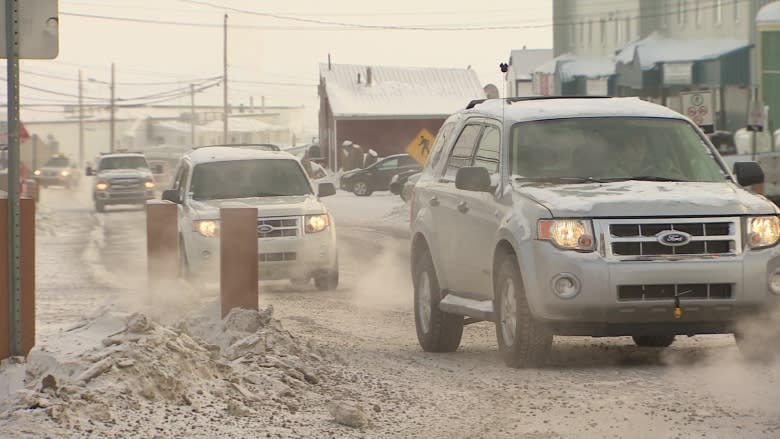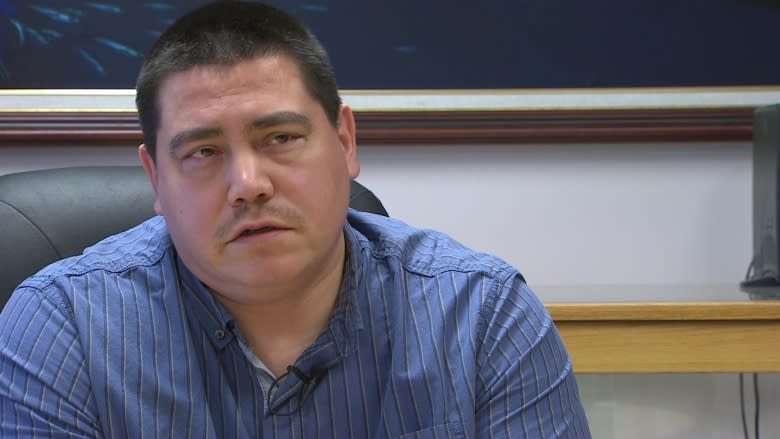Nunavut looks to update its Motor Vehicle Act
The Nunavut government is proposing a swath of changes to its dated motor vehicle act, which it hopes will bring the territory up to speed with driving regulations for the rest of the country — but first it wants to hear what the public has to say.
Among the changes the government is considering is a new graduated licensing system and penalties for distracted driving caused by eating, texting, or using a cellular phone while behind the wheel.
Nunavut is the only province or territory with no distracted driving law and the only province or territory where new drivers don't need to go through a graduated system to get a full driver's licence.
"It's becoming outdated and we have certain agreements with the other jurisdictions, in relation to things like the transferring of drivers licences, vehicle registrations," said James Demcheson, Nunavut's manager of motor vehicle safety and inspections.
These changes will align the territory's regulations "more closely with the other jurisdictions," he said.
Government looks for public input
The government is currently asking residents to complete a survey about the proposed changes, which has 17 questions ranging from "How important is the use of seatbelts?" to "How important is it to have a program in Nunavut to properly dispose of vehicles that have reached their end of life?"
"There may be some concerns about some of the proposed changes, things like possibly the introduction of graduated licensing," said Demcheson.
"The lengthening of the time the individual would have to have a learner's licence may be of concern, especially for those wanting to become employed in certain areas of work that may depend on the classification of the driver's licence."
Under a new graduated licensing system it would take longer for residents to receive their full licence — perhaps up to two years, with two separate driving tests.
But Demcheson says it's impossible for Nunavut to completely reciprocate driving rules from other parts of Canada, since the territory doesn't have any highways.
Keeping unsafe vehicles off roads
In Nunavut, residents have to pay to bring vehicles into their remote communities, often onboard sealift vessels, which bring goods into the region during the summer months.
While some programs have begun shipping old vehicles south, many end up at the dump or abandoned. The government hopes to set up a legal basis for a program to make sure vehicles are removed and recycled.
"One of the thoughts we had was to have a mechanism set up so that we would have an extra fee set up that would work towards this program regarding end-of-life vehicles to offset a certain amount of the costs as need be," Demcheson said.
Creating a program that would ensure the environment is not further damaged would conform with Inuit Qaujimajatuqangit (traditional knowledge), Demcheson said, adding that the government is also looking into requiring periodic emissions tests.
"There have been issues in the past regarding the mechanical fitness of certain vehicles on the road that should not be on the road in the first place."
The survey wraps up at the end of this month and the government hopes to have a proposed update to the Motor Vehicle Act ready for the Legislative Assembly to consider later this year.




